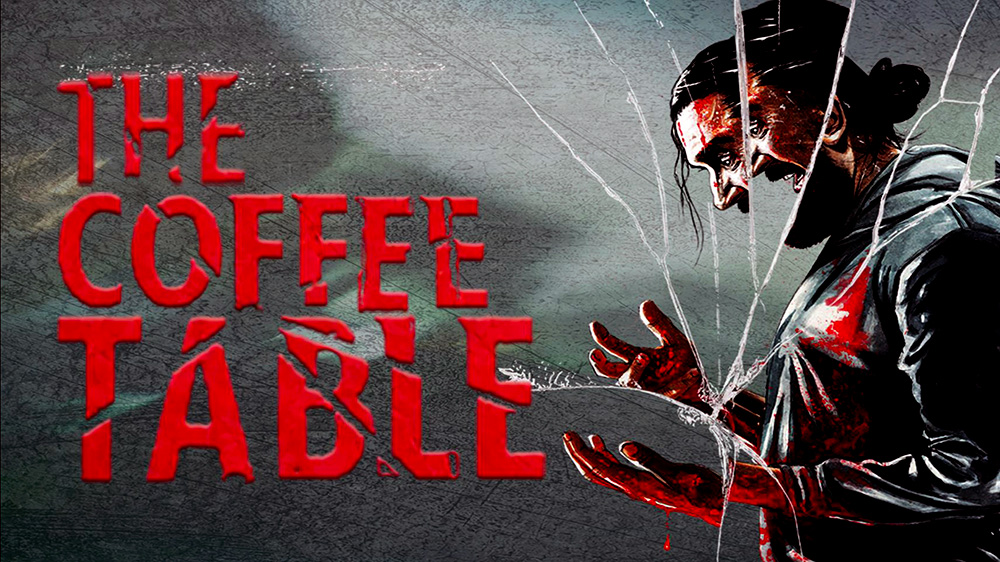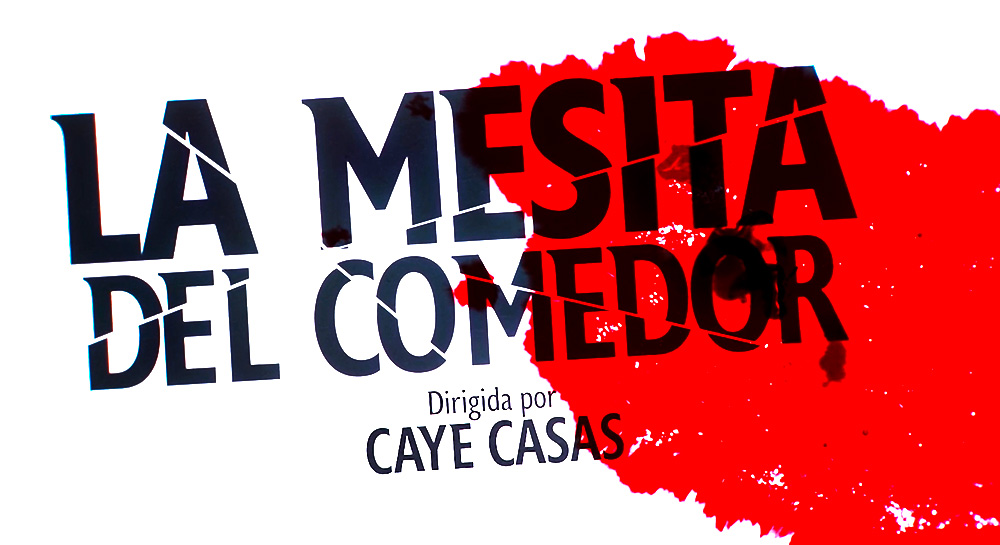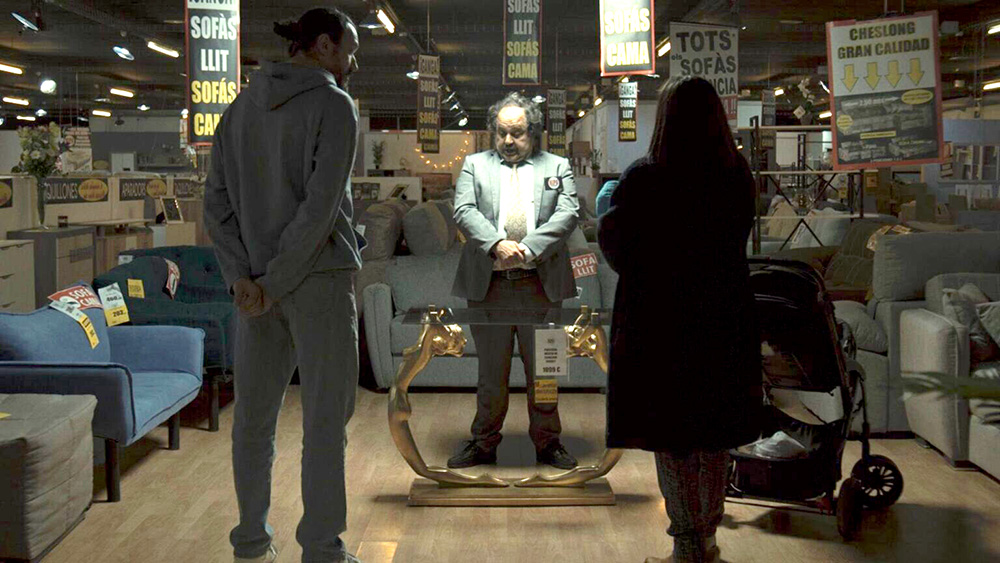

Director Caye Casas said in an interview with RicePieces.com, a British publication, that he made his tour de force because he wanted to explore really scary things in his life that resulted from incredible bad luck, diabolical cruelty and the possibility of unfathomable terrible things happening in the future. The result is a stunner, fiendish and grim, dynamic in scope, as well as grisly and horrific – yet, there are no scenes of gratuitous gore nor gratuitous violence. This meticulously made film packs an incredible visceral punch. And it ain’t funny.
A Friendly Disclaimer Ever There Was One
Audiences, especially patrons of the WORD, should be aware of publicity, marketing, promoting, advertising quips and the like, purporting that comedy permeates THE COFFEE TABLE. Saying or even alluding that there is perfuse comedy in the film is like saying that the the bible of the American Psychiatric Association, known as The Diagnostic and Statistical Manual of Mental Disorders aka DSM-F-TR, is a great source and archive for comedy and uplifting ideas about the nature of people’s eccentricities. Nevertheless, this reviewer-writer respects the findings, opinions, reviews of other publications even though he strongly disagrees with them.
A movie made with the panache and derring-do of Casas’ cinematic beast can tempt one to regard THE COFFEE TABLE as a Rod-Serling-Made-Twilight-Zone-Type-Movie running on steroids of a cosmic nature from another dimension of time and space as yet to be imagined.

Dad, played by David Pareja
A WORD Synopsis of Sorts
Jesús Casas, played smartly by David Pareja, and María, played smartly by Estefania de los Santos, visit a furniture store with their newborn baby boy, Cayetano, cuddled by his mom, to buy a coffee table.
The store salesman, played smartly by Eduardo Antuña, goes into his sales pitch routine to get them to buy an expensive, supposedly high-quality coffee table with frames made of fake gold, and, in his sales pitch lauding the table, and him speaking with a forked tongue manipulative but not particularly deceitful, says that the table is unbreakable.
Jesús is ready to buy the table, not María who sneers profanely at the salesman for his prevarication and she pulls no punches, calling him a dickhead.

María, played by Estefania de los Santos
[In the course of heated back-and-forth bickering and wrangling, the audience learns that each character has a motive reflecting psychological matters that influence their opinions. This is a marvelous scene that tips off the savvy in the audience to be on alert for more crafty, sagacious plot devices that enhance understanding of and appreciation of this film’s inimitable gravitas.]
Eventually, however, the assembly package for the table is purchased and the plan is for Jesús to assemble the table in their apartment. As the couple enters the apartment building, they bump into one of their neighbors and her 13-year-old daughter, Ruth. The daughter – precociously seductive and definitely no ingénue – has been sexually coming on to Jesús who has respectfully – and wisely – rebuffed her for the obvious reasons.
His rejections, nevertheless, fuel Ruth’s ruthless plan to falsely frame himfor coming on to her if he doesn’t do what she wants which is more than intimating what she wants him to do. {Again, another of the filmmakers crafty, sagacious plot devises.}
J&M eventually enter their apartment but María leaves to shop for groceries and wine in to prepare dinner for a visit by Jesús’ brother Carlos and his new significant other, Cristina (many years his younger). Jesús is subsequently left alone with baby Cayetano, for the first time. He, affectionately and sincerely, tries to get the squalling young one to stop crying and resorts to very affectionate cooing.
In the moment, the glass pane of the supposedly unbreakable coffee table breaks – and glass shards decapitate baby Cayetano. Jesús, freaks out beyond belief yet struggles mightily to summon the emotional strength to come to terms with the accident that was beyond his control. He attempts to cleaning up the blood mess in the apartment; he places the headless body of his son in his crib but is too scared to pick up the severed head which rolled underneath a chair. Will he ever?
What this reviewer-writer described immediately above begs the question: WHAT WOULD AUDIENCE MEMBERS DO IF THEY WERE IN A SIMILAR SITUATION?
Etcetera … And so on … And so forth …

The furniture store

Publisher, Editor Gregg W. Morris